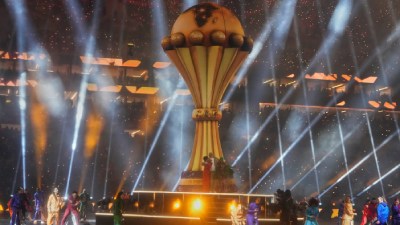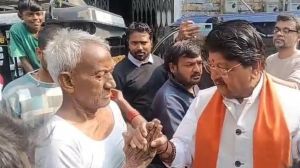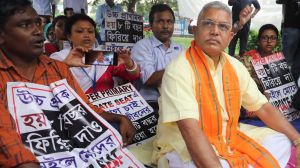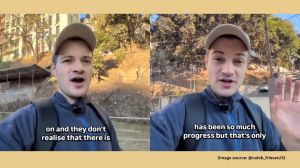Crossing all barriers
With as many languages and regional differences in culture as we have, one tends to feel a little lost if one is far from home. Today, after...

With as many languages and regional differences in culture as we have, one tends to feel a little lost if one is far from home. Today, after 50 years of independence, the people of our country find themselves scattered all over the country. Some people came from Karnataka or the Maharashtra-Karnataka border and decided to settle in Maharashtra. For all of them Pune is a home away from home. But their identity remains untouched and there8217;s nothing as good as good chat with someone who can share in the reminisces of a common past. After all, one can trace one8217;s past to one8217;s place of origin and from this one8217;s identity is maintained. Which is why the founder members of the Kannada Sangha came together. 8220;A few of us met at times coincidentally and felt the need to keep in touch in this new place. But we never did for we didn8217;t have a reason to. Then Dr Kalmadi Shamarao and I got together and decided to start some activities so that all the Kannada-speaking people had a reason to meet, hence the Kannada Sanghacame into being in 1958,8221; explains G M Shetty, president of the Sangha and a hotel and restaurant consultant and proprieter of Modern Cafe, Hotel Yatrik, Poona Cafe and Bamboo House.
He continues, 8220;Of course, that was not the only reason to form the Sangha. Just then the Kannada school at Rasta Peth was facing financial and managerial problems. We offered financial help but they still faced problems managing the school. So it was closed. The Kannada-speaking students and their parents requested us to look into the matter. So we took over the management of the school which held classes only upto standard seven. The parents expressed the difficulty they faced once their wards had finished the seventh class. Their problem was that they either had to send their wards to Mumbai or change the school where the children had to adjust to a different language of instruction. Both the alternatives were inconvenient, so keeping this in mind we started the Kannada High School. Initially the RCM Gujarathi High school offered us four classrooms where we would conduct our classes. In those days the high schools comprised of standards eighth to eleven.8221;
With appreciation he adds, 8220;They never charged us for the place but two years later they needed the extra space and so we had to shift our quarters to New English School for a year. But then we realised that this problem would arise every now and then. So we bought land where the school stands now and it began functioning in full-swing from 1962. Along with the Karnataka High School now Dr Kalmadi Shamarao High School, we also ,started an English medium school that now conducts classes from nursery to junior college. Today, we have some 3,600 students studying in our school. Among other things, we have a fully-equipped computer science laboratory.8221; The torch of Kannada culture burns bright as Shetty says, 8220;The Kannada Sangha has maintained an updated library of all the Kannada literature in the school premises.8221; Cultural development is also high on their agenda. They provide a platform for budding artists and also arrange programmes whenever anyone visits Pune from down south. 8220;Kirtans andbhajans are arranged once in a while but the major cultural event is the Dashera Naddabba8216;. We celebrate it just like we would back home, enacting the Ravana Vadhe8216; and the victory of good over evil on the first day and some little entertainment programmes on the second,8221; says G M Shetty. The Sant Purandardas Music Competition for Kannada singers only is also organised every year.
He continues, 8220;Another grand gathering is held on Republic day at the school grounds. For the flag hoisting ceremony we invite all the people from the Bunt community. It8217;s just a get-together where members of our community from far and near come and this way we know their whereabouts and can keep in touch. Lunch is served to all the employees of the school along with the members of the Sangha. This tradition I started years ago so that the younger generations can meet the people from their own community for all practical purposes. We are Maharashtrians now. Our children converse in Marathi and do not know Kannada since they have been born and brought up here.8221;
The Sangha is run by a board of 11 trustees who are elected by the 800 members. The trustees in turn elect the president. The elections are held every three years and during their tenure they manage the school and other affairs for their community. The board meets once a month to discuss the problems and plan for the future. Though the general body meeting is held only once a year, the members are free to approach the president in case of any difficulty. 8220;We look into every small matter and so the members feel free to come and discuss their problems whatever it may be.8221; When asked whether he is like a father figure to the community, says the president, 8220;You said it!8217;
- 01
- 02
- 03
- 04
- 05































